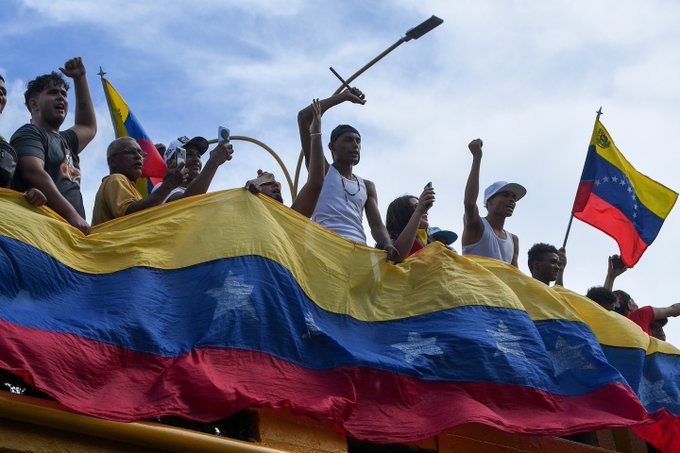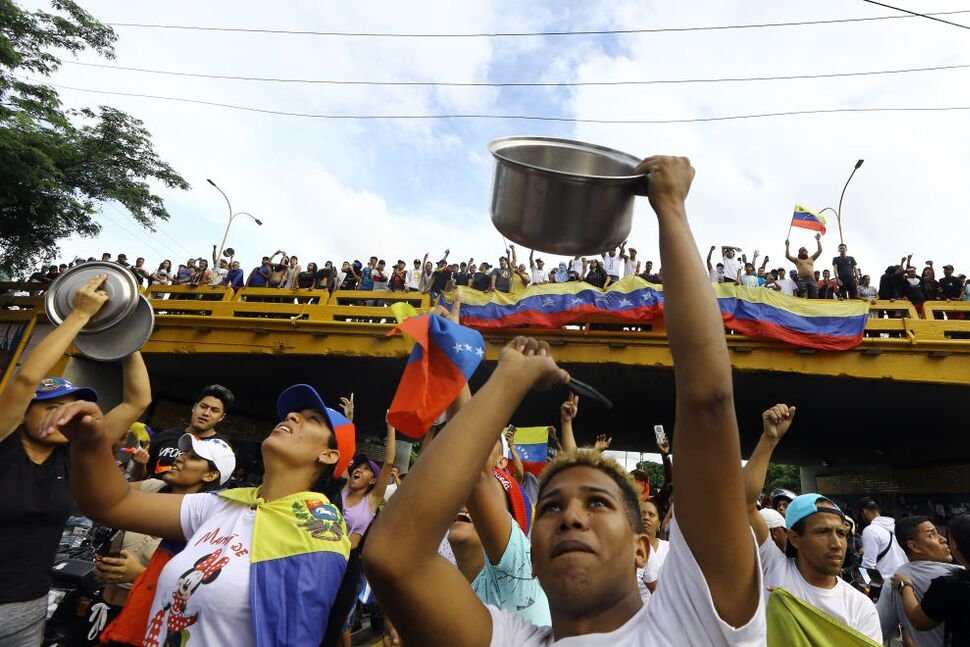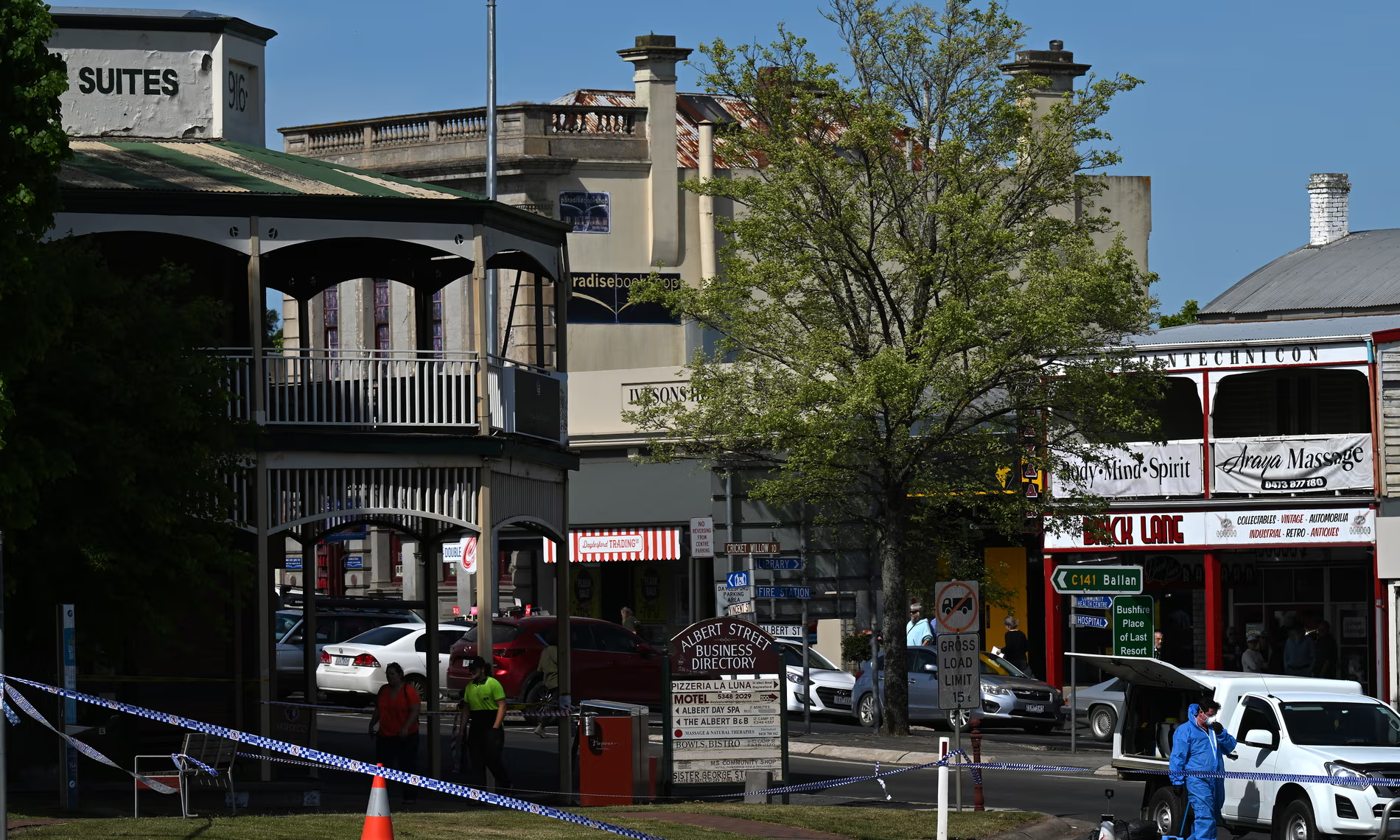The crisis in the Latin American country isn’t the war in Gaza. But pressure looks likely to mount.
President Joe Biden faces a new international crisis in Venezuela, where deadly protests filled the streets after socialist authoritarian Nicolás Maduro claimed victory in Sunday’s election without releasing detailed results of the vote.
Maduro has been hit by a cascade of international pressure, with the Biden administration, the G7 countries, the Organization of American States, independent pollsters, and many of Venezuela’s Latin American neighbors expressing deep concerns – or more – about electoral fraud on a vast scale and openly doubting the official results.
Venezuela’s election authorities said Maduro “had won with 51% of votes, but the opposition said the 73% of vote tallies to which it has access showed its candidate Edmundo Gonzalez had more than twice as many votes as Maduro,” Reuters reported.
On Tuesday, Biden – who last year accepted a deal that eased pressure on Maduro in return for election concessions – spoke by telephone with Brazilian President Luiz Inácio Lula da Silva, who has described the aftermath of the election as “normal” and “calm.” Both agreed on the importance of Venezuela releasing full vote tallies at the polling station level.
Maduro on Wednesday said he’d requested the country’s high court, which is closely tied to his government, to conduct an audit of the election and that all electoral tally sheets were ready to be shown.
Venezuela cut diplomatic ties with seven Latin American countries – including Argentina, Chile, and Peru – for calling the official results into question. Peru, which has recognized Gonzalez as president-elect, booted Venezuelan diplomats in response to Maduro’s purported victory.
Here are some things to know about the crisis – and what it means through a U.S. lens.
Fast Facts About Venezuela
The unrest has decades-old roots in the country’s politics and the economics of oil and populism. Maduro effectively inherited power from President Hugo Chavez, a fierce critic of the United States who built a cult of personality before dying of cancer in 2013.
- If you remember nothing else about Chavez, you may recall his 2006 speech at the United Nations, where he labeled President George W. Bush the “devil” and said he could still “smell sulfur” at the podium after Bush’s address.
The country’s fortunes have risen and fallen with oil prices over the last two decades. Critics accused Chavez of hollowing out the country’s democratic institutions and cracking down on dissent. Rampant violence has led millions to flee the country – not just to its neighbors, but to the United States.
Washington has long accused Caracas of not doing enough to battle international drug flows and human trafficking, as well as “not cooperating fully” with global counterterrorism efforts. U.S. sanctions have hit the Venezuelan oil sector.
The U.S. Political Angle
In crass political terms, the crisis in Venezuela isn’t like Gaza.
To be sure, there are U.S. interests at play as the South American country grapples with the latest unrest.
- Oil prices are set by global markets, and disruptions can lead to more dollars chasing fewer barrels, ultimately leading to price hikes at the gas pump.
- Even before the current political turmoil and violence in the streets, some 7.7 million Venezuelans had fled their homes or their country in what experts were calling the largest displacement crisis in the world. Last September, Venezuelans briefly surpassed Mexicans for the first time as the largest group by nationality arrested for illegally crossing the U.S. border.
But Gaza notably polarizes Democrats in a way Venezuela does not. The party’s new de facto presidential nominee, Vice President Kamala Harris, has much more vocally expressed concerns about Palestinian suffering than Biden has, even as she has expressed strong support for Israel.

Arab American voters critical of the White House’s position on the Middle East could make the difference in the critical battleground state of Michigan. There’s not an analog population that will decide a pivotal state based on policy toward Venezuela.
- And while Democrats have been watching former President Donald Trump’s robust share of the Latin American vote with alarm, Harris appears to do considerably better with them than Biden did before withdrawing from the 2024 race.
Still, watch for pressure to mount on the White House to take a harder line on Venezuela, including from Democrats. U.S. officials are now saying it’s too early to talk about fresh sanctions – but that’s plainly under consideration.
“Our patience, and that of the international community, is running out,” National Security Council spokesman John Kirby told reporters Wednesday. “It’s running out on waiting for the Venezuelan electoral authorities to come clean and release the full detailed data on this election so that everyone can see the results.”









Leave a Reply